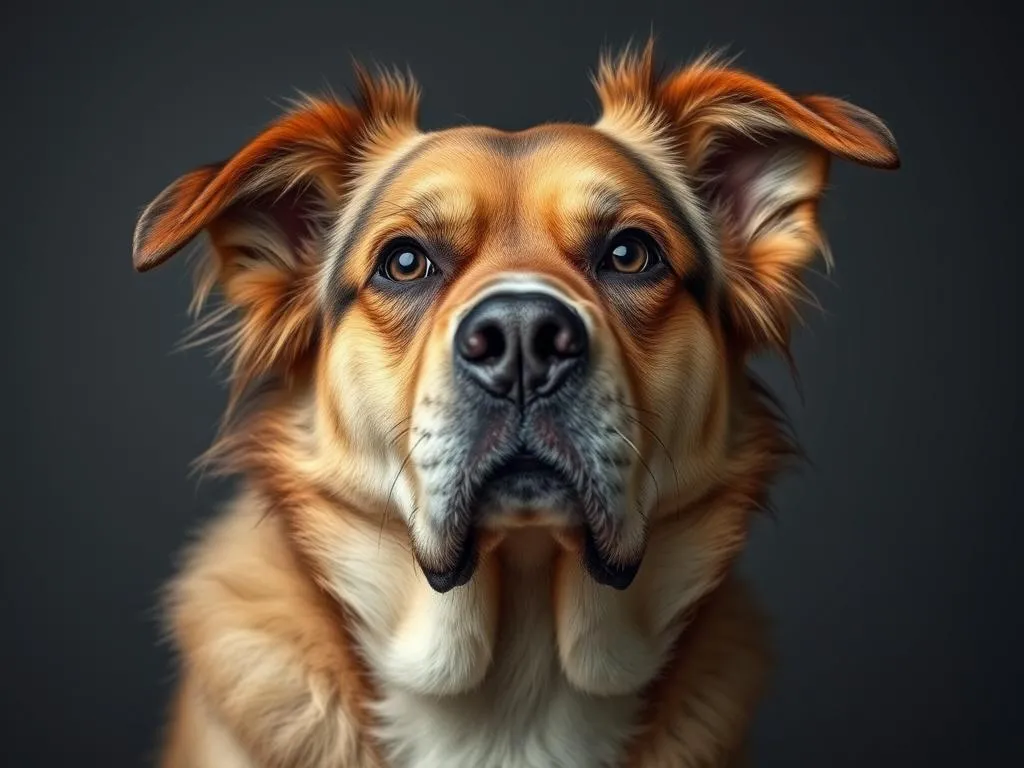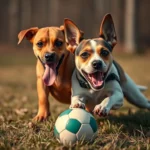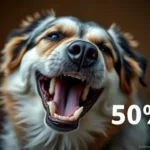
Have you ever witnessed your dog doing something that made you laugh uncontrollably, only to see their expression change as if they were aware of their own folly? Perhaps they stumbled while trying to catch a ball or awkwardly waddled in a costume that just didn’t suit them. This kind of behavior raises an interesting question: do dogs get embarrassed? As we delve deeper into this topic, we’ll explore canine emotions, behaviors, and the science behind what might be happening in their furry minds.
Understanding Dog Emotions
The Emotional Range of Dogs
Dogs are known for their incredible emotional intelligence. They are capable of feeling a wide range of emotions, including happiness, sadness, fear, and anxiety. Studies have shown that dogs can recognize human emotions through facial expressions and vocal tones. For instance, researchers discovered that dogs respond differently to happy versus angry faces, indicating a level of emotional awareness that was once thought to be exclusive to humans.
Comparing Canine and Human Emotions
While there are certainly similarities between human and dog emotions, significant differences exist as well. Humans experience complex emotions influenced by societal norms, culture, and personal experiences. In contrast, dogs operate primarily on instinct and the immediate context of their surroundings. Understanding these differences is crucial for dog owners. It allows them to interpret their pets’ behaviors accurately, fostering a better relationship based on empathy and understanding.
What Is Embarrassment?
Defining Embarrassment
Embarrassment in humans is often defined as a self-conscious emotion that arises in social situations where one feels exposed or judged. Psychologists explain that embarrassment can stem from a fear of negative evaluation by others, leading to feelings of shame or awkwardness. This emotional response is deeply rooted in our social nature as humans.
Can Animals Experience Embarrassment?
The question of whether animals can experience embarrassment is complex. While some animals, like primates, have shown behaviors that suggest a form of self-consciousness, definitive evidence of embarrassment in dogs remains elusive. Observations in animal psychology reveal that many species display behaviors indicating social awareness, but these do not necessarily equate to feeling embarrassed in the human sense.
Do Dogs Get Embarrassed?
Anecdotal Evidence
Many dog owners have shared anecdotes where their pets exhibited behavior that seemed to suggest embarrassment. For example, a dog might refuse to make eye contact after misjudging a jump or might try to hide after tripping over their own paws. Such scenarios, while humorous, often lead owners to wonder if their dogs are feeling self-conscious.
Common scenarios that lead to perceived embarrassment include:
– Failing to perform a trick they were previously adept at.
– Wearing an outfit that seems to draw attention.
– Making a mistake during play, such as misjudging the distance to a toy.
Scientific Perspectives
Scientific opinions on whether dogs can feel embarrassment vary. Some experts argue that what appears to be embarrassment is often a reaction to the owner’s response rather than an internal emotion. For instance, a dog might cower or turn away if their owner reacts strongly to a mistake, interpreting their owner’s reaction as a signal that something is wrong.
Canine body language can also provide clues to their emotional state. Signs that may indicate a dog is feeling embarrassed include:
– Avoiding eye contact.
– Tucking their tail between their legs.
– Lowering their head or body posture.
Signs Your Dog Might Be Embarrassed
Behavioral Indicators
Identifying whether your dog is experiencing embarrassment can be nuanced. Some common behaviors that may suggest embarrassment include:
– Hiding: If your dog retreats to a corner or another room after a blunder, they may be feeling insecure.
– Submissive postures: This can include rolling over or exposing their belly as a way to signal submission.
– Ears back: A dog with ears pinned back and a lowered stance may be feeling uncertain or embarrassed.
Differentiating between embarrassment and other emotions like fear or anxiety is essential. For example, a dog that is fearful may exhibit more pronounced signs of distress, such as shaking or whining, while an embarrassed dog might seem more reserved but not overtly distressed.
Situational Triggers
Certain situations can provoke embarrassment in dogs. These include:
– Social interactions with other dogs: If a dog feels out of place or is corrected by another dog, they might display signs of embarrassment.
– Mishaps in public: Dogs can sometimes feel self-conscious if they misbehave in front of a crowd, such as barking excessively or getting tangled in their leash.
The Role of Training and Socialization
Impact of Training on Dog Behavior
Training plays a crucial role in shaping a dog’s emotional responses and overall behavior. Positive reinforcement techniques can help dogs feel more secure and confident. When dogs know what is expected of them and are rewarded for good behavior, they are less likely to feel embarrassed when they make mistakes.
Effective training can also help dogs learn how to navigate social situations, reducing their likelihood of experiencing discomfort in public settings. Socialization, or exposing dogs to various environments and situations, is vital in helping them develop confidence.
Encouraging Confidence in Dogs
Helping dogs build confidence can significantly reduce feelings of embarrassment. Here are some tips for fostering a supportive environment:
– Use positive reinforcement: Reward your dog with treats and praise for good behavior.
– Socialize gradually: Introduce your dog to new environments and other pets slowly to prevent overwhelming them.
– Provide a safe space: Ensure your dog has a cozy, familiar spot where they can retreat if they feel anxious or embarrassed.
What to Do If Your Dog Seems Embarrassed
Responding to Embarrassment
If you suspect your dog is feeling embarrassed, it’s essential to respond appropriately. Offering reassurance is key. A calm, supportive demeanor can help your dog regain their confidence. Avoid laughing or scolding, as this may exacerbate their feelings of insecurity.
Avoiding Embarrassing Situations
Preventing situations that may lead to embarrassment can contribute to your dog’s overall well-being. Here are some strategies:
– Be mindful of clothing: If your dog dislikes wearing costumes or clothing, it’s best to avoid putting them in such situations.
– Practice tricks at home: Before showcasing your dog’s tricks to friends or family, ensure they are comfortable and confident performing them.
– Choose appropriate environments: When socializing your dog, select locations where they feel safe and secure.
Conclusion
While dogs may not experience embarrassment in the same way humans do, they undoubtedly have complex emotional lives. Understanding the nuances of canine emotions can help pet owners foster a supportive environment for their furry friends. Observing your dog’s behaviors and responding with empathy can strengthen your bond and contribute to their overall happiness.
In the end, whether or not dogs feel embarrassment, one thing is clear: our canine companions bring joy, laughter, and a unique perspective on life. So next time your dog does something silly, take a moment to appreciate their individuality and the delightful moments they create in our lives.









